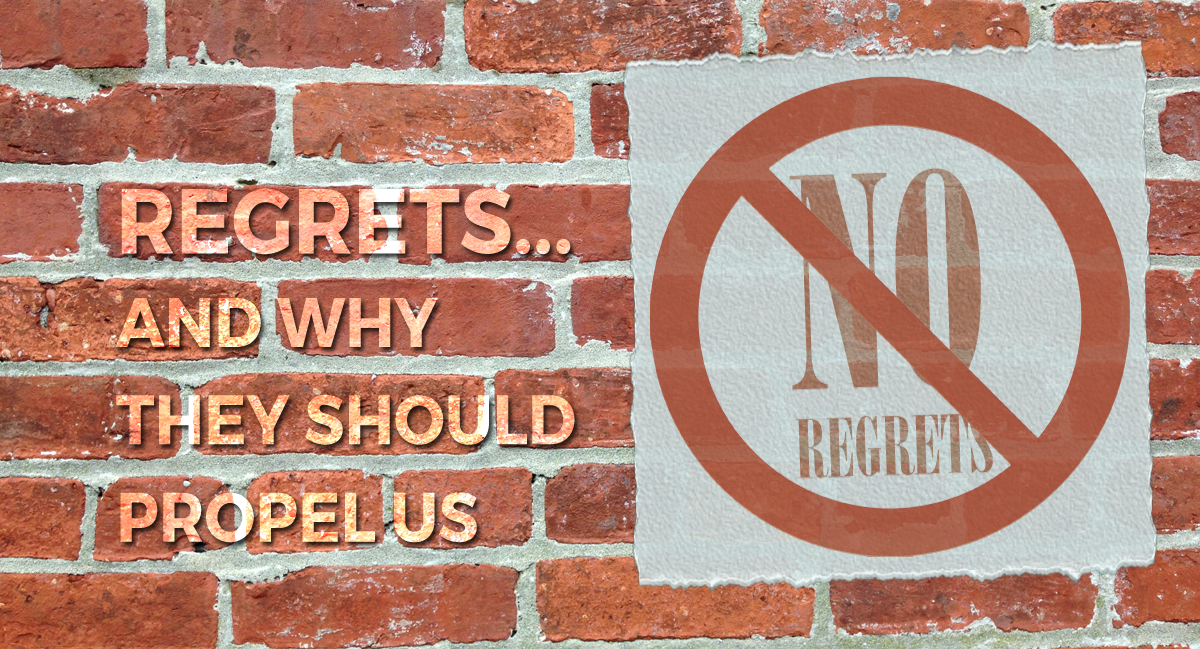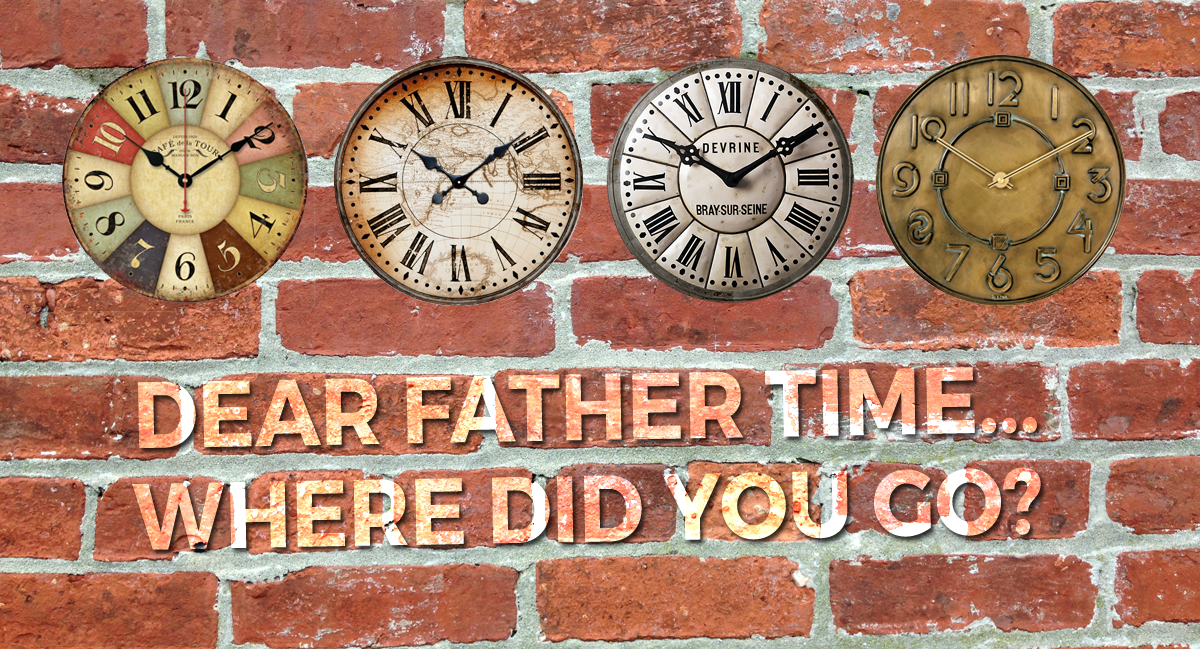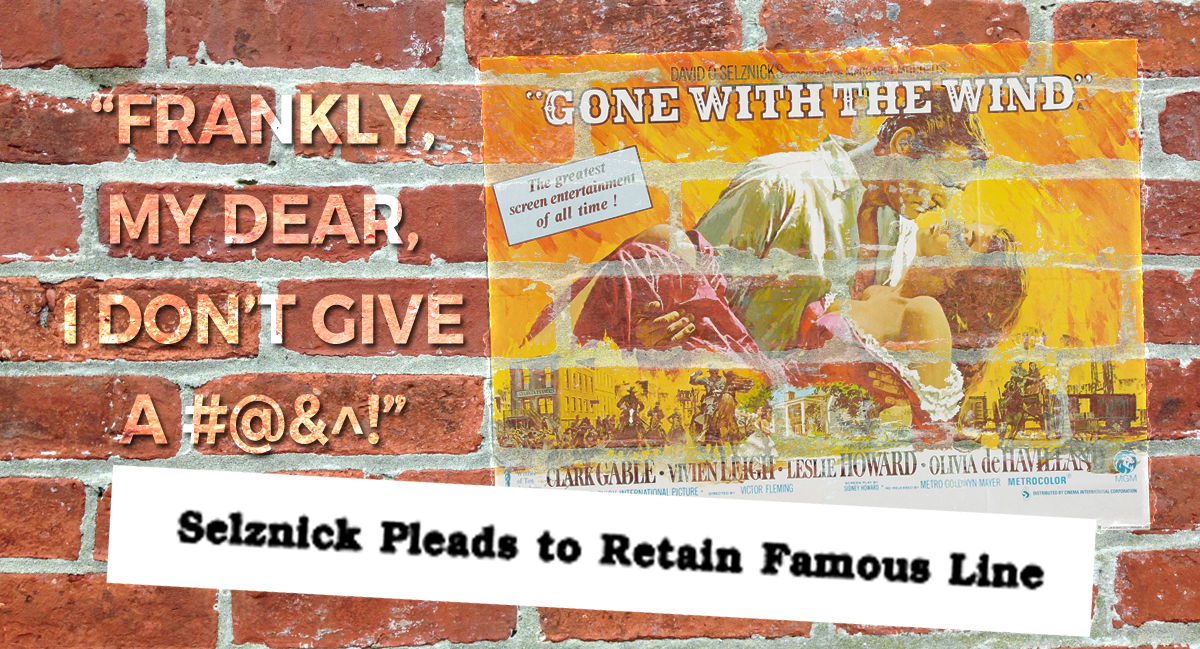All our lives we’ve heard the proclamation “no regrets”. We’ve seen it on bumper stickers and T-shirts. finally after 48 years I’m coming to the conclusion that a life with no regrets is probably a life not fully lived.
The idea of regrets is typically sold to us in a dreadful manner. They speak to failure and missed opportunities, but I’m here to say that regrets can be the catalyst that launch our newfound selves. They can lead us into a new ways of living.
Recently I was speaking with my son in China, who has two months remaining of his six-month stay there. I encouraged him to get out, to go, and to do; to experience as much of the culture as he can while he’s there. I also told him that in my life I don’t tend to have regrets about what I’ve done, but moreso, I regret the things I didn’t do.
My regrets tend to be about wishing that I had done more with the opportunities I was presented with. For example, back in 1989 I had received my first job out of college. It was an odd situation where I was the only full-time employee at a small television station in upstate Wisconsin. The station’s license with the Federal Communications Commission was being kept alive by our mother station in Milwaukee for the purposes of relocation at some point in the future. My job was to keep us “on air” for the bare minimum number of hours required by the FCC. So, at 4:30 PM every weekday I would arrive at the station and fire up the transmitter. At 5 o’clock each evening I would begin broadcasting pre-recorded programs until 11 PM at night when I would sign off the air, fill in the log book, and fire down the transmitter. I worked these shifts in complete solitude. I would insert the public service announcements, the weather, and any other pertinent information that needed to be aired between programs. Once in a blue moon I’d answer a phone call from a viewer and on Wednesday’s the station engineer would bring a box of tapes that would provide the content for another 7 days.
After the first week or two on the job, it became pretty routine. And it didn’t require my full attention, so I found myself with lots of time on my hands each evening. I remember spending some of that time working on a stage play that would never be finished and as I clacked away on the old electric typewriter I would occasionally look over at the dark, empty studio where several television cameras sat on tripods pointed at nothing.
A couple of times I used the cameras to work on projects. I remember creating a demo reel that would help me get my next job, but for the most part, night after night, week after week, those cameras sat silent and unused. No, my bosses at the mother station 200 miles away never told me that I needed to use the cameras, but they also never told me that I couldn’t use the cameras. Looking back, I could have had those things running every single day. I could’ve come into the studio early and made use of them. I could’ve created a new community television series to help the station better connect with its audience. I could’ve, I could’ve, I could’ve… but I didn’t. And in the didn’t, that’s where my regrets piled up. That was also the first time I realized that a camera without a project is an absolutely worthless piece of electronic wizardry. I only lasted at the job for 6 months. When I turned off the transmitter for the final time I packed up my regrets, took them with me, and moved on.
Almost a decade later, I was up for a producing position with a company I really wanted to work for. They had flown me me across the country to interview, it had gone really well, and I ended up being their number two pick. I was disappointed and depressed. I remember regretting a moment during the job interview when I said no to something when I really should have said yes. They asked if I had any experience Line Producing, and at the time I didn’t know what line producing meant, so I said no. In reality I had line produced, it just wasn’t a term that I was familiar with. And I’ve look back at that moment during that interview for the last 20 years thinking that was the moment that guaranteed I didn’t get the job.
I regretted it instantly. I remember finding out that I wasn’t their person for the position and getting depressed, but it didn’t last long. I had been working as a producer in Virginia and I’ll never forget the day after I learned that I didn’t get the job, I walked into the studio where I worked and I announced to my colleagues that I was going to embark on making a feature motion picture. It was crazy. I had never before attempted anything like that. It was probably the biggest declaration of my life and it changed who I was and it would never have happened without the regret that I had of saying the wrong thing at that interview.
Once I spoke the words out loud that I was “making a film”, I found myself. I also had instant accountability. I knew that if I didn’t succeed in making that film, my coworkers would always know that I was a failure. So by speaking those words it gave me a sense of accountability that pushed me to complete my task. I immediately set out to write the screenplay and 10 months later we were in production on the picture. My regret become my motivator. My disappointment in not getting what I wanted opened the door to my new life.
Regrets come in all shapes and sizes. Some are much bigger than others. Some of the decisions that we make can really impact our lives for the worse. But I would encourage each of us to not look on our regrets with disappointment, but to look on our regrets with hope. A life with no regrets is surely a life not lived. May the regrets in your life propel you to do great things.



